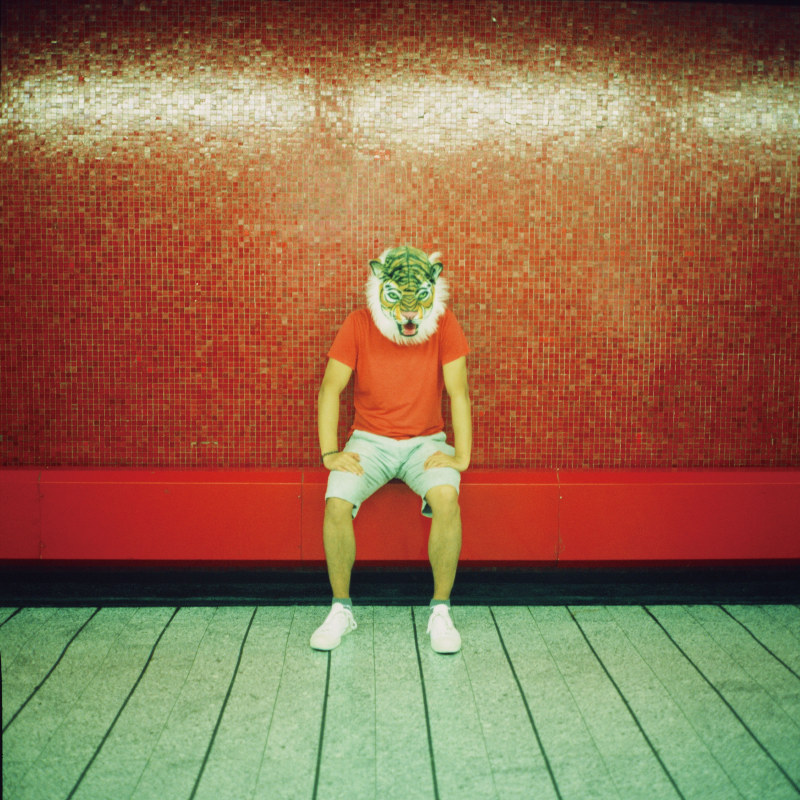We have all experienced moments where the familiar suddenly transforms into an overwhelming sense of uncanny strangeness. Laughter and merriment at parties can become meaningless noise, close friends and loved ones appear as strangers, and unexpected group photos in an album make one question the authenticity of his or her memories. These moments of feeling like an outsider are reminders that the world, constructed by the rules and rationale we are accustomed to, is somehow rejecting us.
Over the course of 12 years, Bai Chuan created his series "This Animal Year". His initial choice of the tiger mask was quite simple – the tiger is his Chinese zodiac sign. This foreboding tiger mask accompanied him through the ups and downs of life, witnessing family upheavals, changes in his hometown, career developments, and countless mundane moments in daily life. The core of this exhibition is a memory corridor comprised of this series of photographs, devoid of specific timestamps or character clues. It's akin to suddenly getting lost in memories, with moments from the past randomly flooding in.
In these photos, most often, it's Bai Chuan himself donning the tiger mask, while at times, others are in the midst of a photo shoot. The tiger mask obscures all facial expressions, and no matter the context, the fierce tiger-headed figure always gazes numbly into the camera, sometimes even pointing a gun towards herself or himself. Undoubtedly, this constant element has become a punctum throughout the series, negating the private moments, somber social rituals, and poignant emotions. What we see in these photos is a strangely familiar yet surprising sense of uncanny strangeness. Family portraits, party snapshots, travel souvenirs – the photos that many of us possess abundantly in this era all become unfamiliar under Bai Chuan's interpretation. The tiger-headed individuals in the photos seem detached from the time and space within the images, almost like intruders rejecting norms and customs, or concealing the emotions of those being photographed. From this perspective, what I discern in Bai Chuan's work is his fascination with objects or encounters that elude his grasp in life, and his endeavor to evoke their positive responses through photography.
"Freud brings us the courage to call ourselves disintegrated in order not to integrate foreigners and even less so to hunt them down, but rather to welcome them to that uncanny strangeness, which is as much theirs as it is ours." As Julia Kristeva quote Freud in "Strangers to Ourselves" when the subject encounters strangers, the feeling of strangeness doesn't stem from the encounter with others but fundamentally arises from within ourselves, from those concealed aspects of ourselves that remain unfamiliar. Throughout Bai Chuan's decade-long photographic journey, he indeed presents the encounters of this nature - those punctum between the unfamiliar and the familiar.
Text/ Li Zijian
